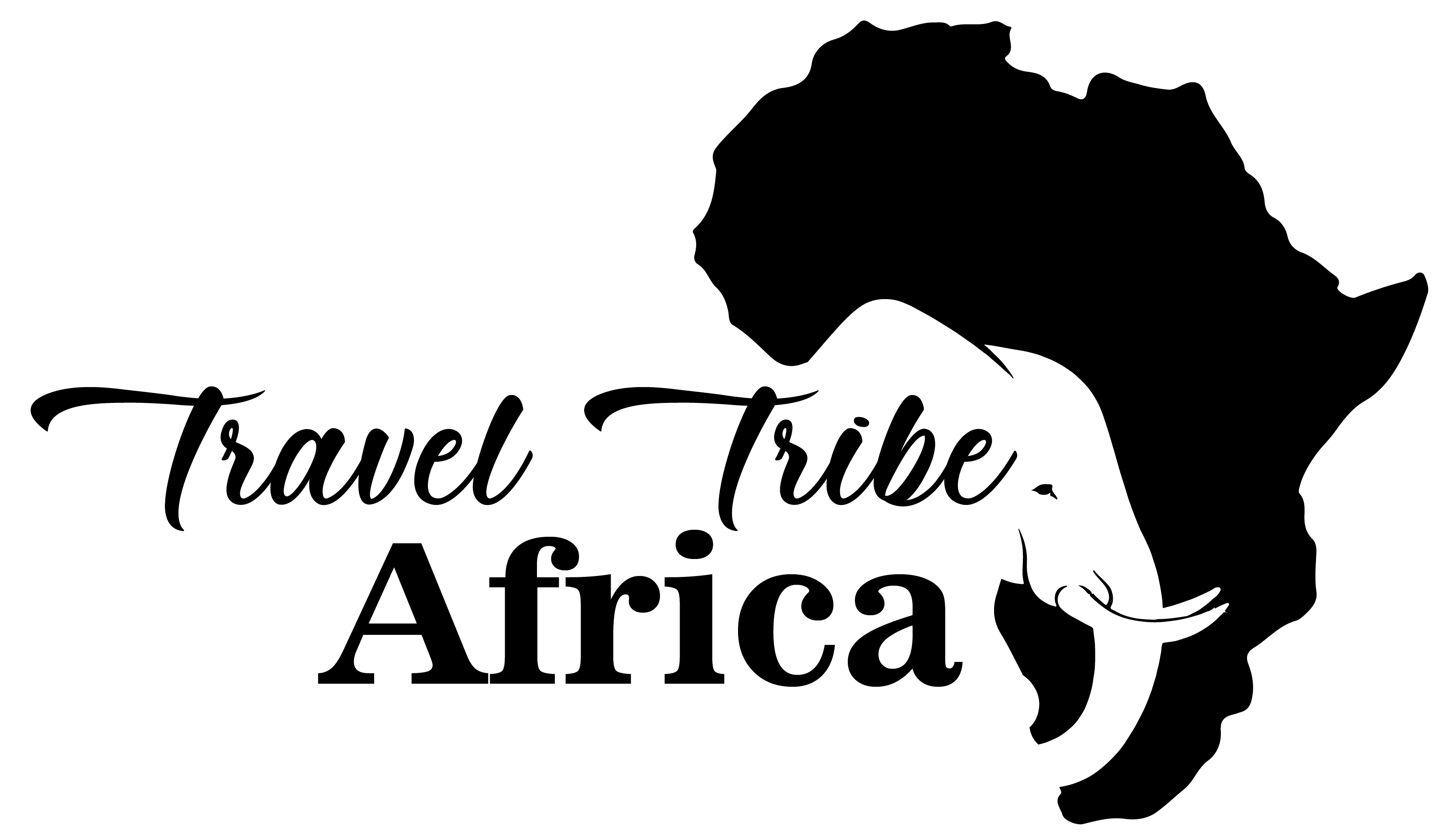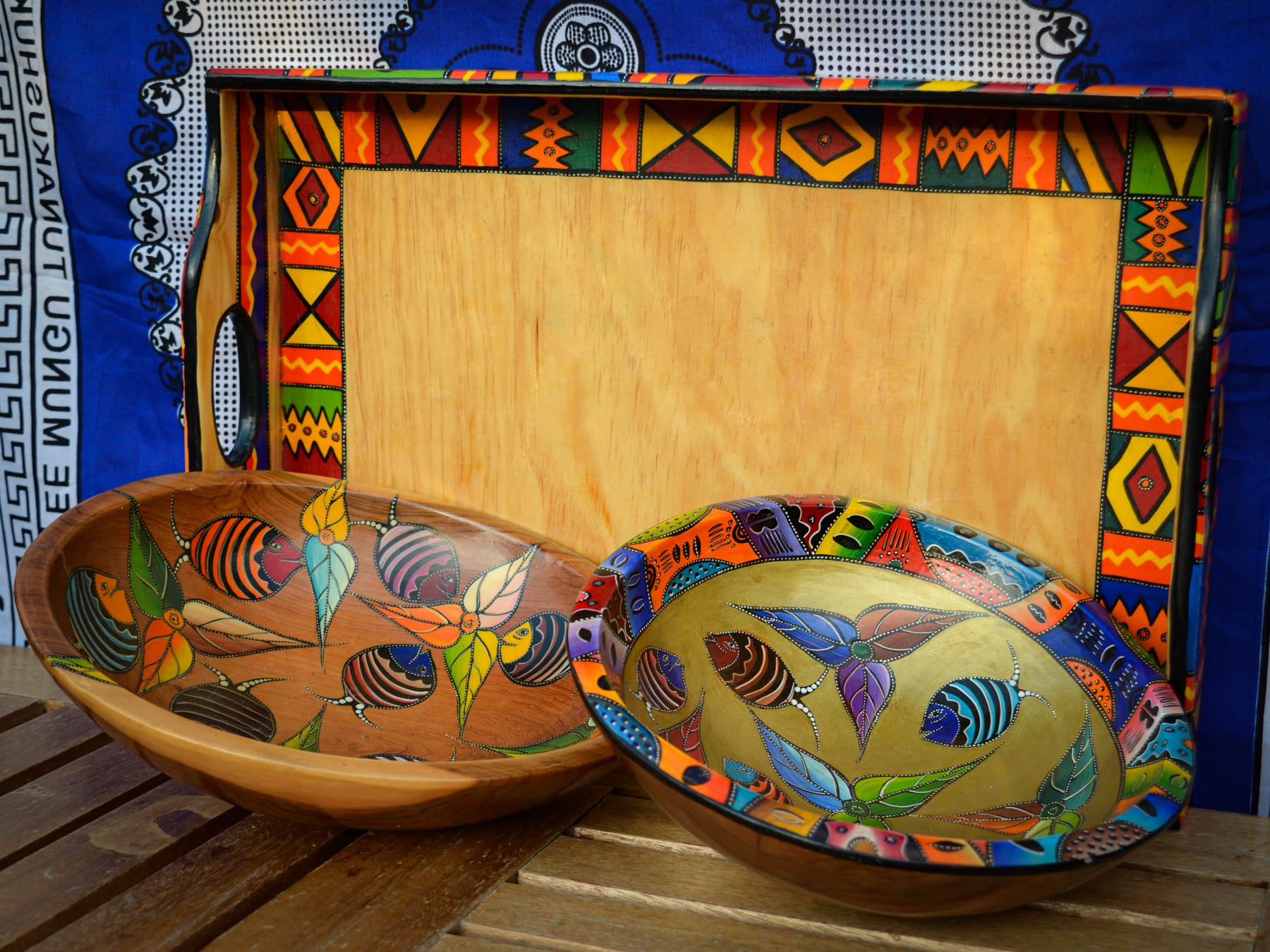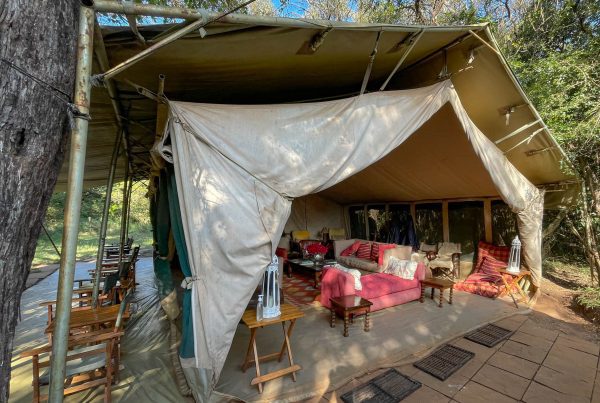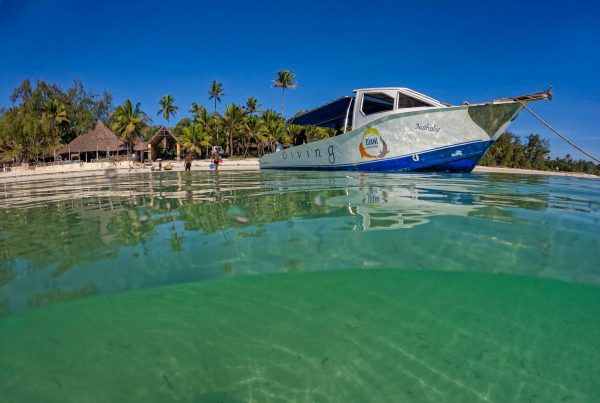Kenya is a treasure trove of handicrafts, gifts and things to take back with you. The choices will be limited by your imagination!
This post is largely visual, with plenty of photos to showcase some of the best gift options Kenya offers.
I’ve deliberately not given prices and this is because they can vary so much for many different reasons and like anything, change over time. Negotiation is also part of the Kenyan culture and part of the overall experience – so there’s some tips on that for you instead!

Things to Know
You can buy handicrafts, fabrics, clothing, accessories, artwork and other souvenirs in a whole host of places across Kenya. The best places are often the markets across Kenya, typically found in all cities, towns and tourist areas.
In Nairobi, Maasai markets are held at various shopping malls on different days. As days and times may vary, the best way to find out times is to ask staff at the mall or call them first to check.
You can buy all kinds of Kenyan inspired handicrafts including jewellery, home decor pieces, dining mats, coasters, picture frames, t-shirts, artwork, fabrics, handbags, souvenirs and so much more.
You can also buy similar items at gift stores in shopping malls, airports and hotels. It’s common for the prices to be much higher in such places and the amounts will not generally be negotiable. However, sometimes the quality can be better on some items and they will usually have some unique items too, that you cannot find in other places.

You can buy handicrafts, fabrics, clothing, accessories, artwork and other souvenirs in a whole host of places across Kenya. Image copyright Ayaan Chitty.
Bargaining
Generally speaking, unless you are in a more upscale store where prices are clearly fixed, Kenyans will expect some bargaining.
However, whilst it is part of the culture, remember that a lot of hard work and in many cases, a lot of hours have gone into creating some truly beautiful pieces. With no government support, these traders rely solely on making a fair living on what they can sell. Many of them have families to support and make extremely low wages.
Cutting them down to their bare minimum price with harsh bargaining tactics seems rather unfair.
You should also accept that Westerners will pay more than a local. For this reason, my wife often sends me away while she wanders around the markets and engages in the negotiations in Kiswahili! She knows that as soon as they see me, the price will automatically be higher – no matter how good the bartering technique.
In most markets, it’s possible to negotiate between 20% – 50% off what you are first told. But, use this as a loose guide as discounts will vary depending where you are; generally the more “touristy” the place, the less you will get off. The best advice I can give is to set a fair price in your mind and negotiate down to that price – or as close as you are prepared to go.
For me personally (when I’m not with my wife!) if the price seems reasonable, I will avoid over-bargaining. Often, you would pay much more in a shop for the same item in your home country, so you will get a good deal and the trader makes a fair price.
In Kenya, bargaining is also best done with some light-hearted banter; if nothing else, you walk away having a good laugh and enjoy the whole experience much more.

My wife handles the negotiations in Kiswahili! Image copyright Ayaan Chitty.
What to Buy!
You will be spoilt for choice as you wander round the various shopping areas and markets. With so many great things for the home as well as clothing and accessories for you and your children, it’s highly likely that your biggest problem will be how to carry everything back with you, as opposed to looking for what to buy!
The aim of this post is to provide some inspiration for what to look for on your family trip – there are of course, so many amazing things you could potentially buy which are not listed here. These following items are some of the things we’ve personally collected and also reflect some popular souvenirs for many tourists.
So, here we go…
Coffee and Tea
Kenya is world-renowned for its premium quality coffee and tea exports.
Whenever we travel to Kenya or family come to visit, coffee is my number one priority!
One of the best places to get coffee (Kahawa) is from Java House. You can buy Kenyan and other East African coffees directly from their shops or from most supermarkets. An alternative is Dorman’s coffee, which is also a good brand.
More recently, a number of specialist coffee shops have also sprung up in Nairobi – so check out the Village Market and Pop-up Market in Westgate too.

Kenya is world-renowned for coffee production and exports. Image by Andrea Sarlo.
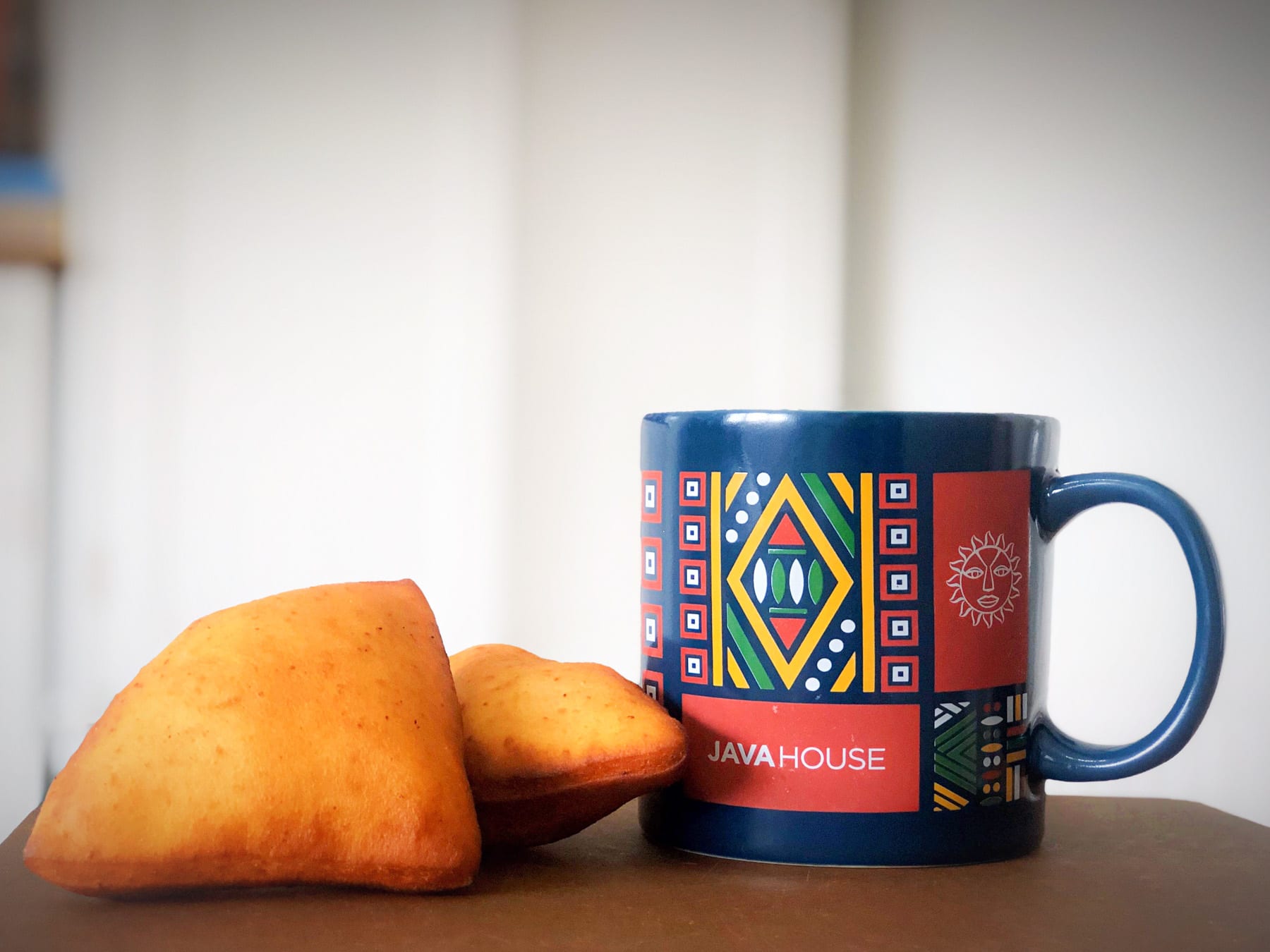
One of the the best places to buy East African coffee to take home with you is Java House. Image copyright Ayaan Chitty.
For tea (Chai), there are a few tea farms outside of Nairobi (such as Limuru), where you can visit and purchase tea. It’s a great experience to visit a tea farm and buy the tea direct from its source – but not always practical.
The next best option are supermarkets, which stock plenty of Kenyan tea and this is often the easiest place to get hold of it. Kericho Gold is a premium brand available in most supermarkets and I would recommend this.

Tea pickers from one of Limuru’s tea farms. Image copyright Ayaan Chitty.

Tea can be purchased from the tea farm. Image copyright Ayaan Chitty.

Buying tea direct from the farm is a great experience. Image copyright Ayaan Chitty.
Gifts from Maasai Market and Handicraft Traders
The items shown here are popular choices from the various Maasai markets and handicraft traders. You can find great choices and bargains at the markets and it’s an experience in itself to walk around and engage in some friendly banter with the traders.
Many similar items can also be purchased from gift shops too. Gift shop items will be quality assured but also have a higher price tag.
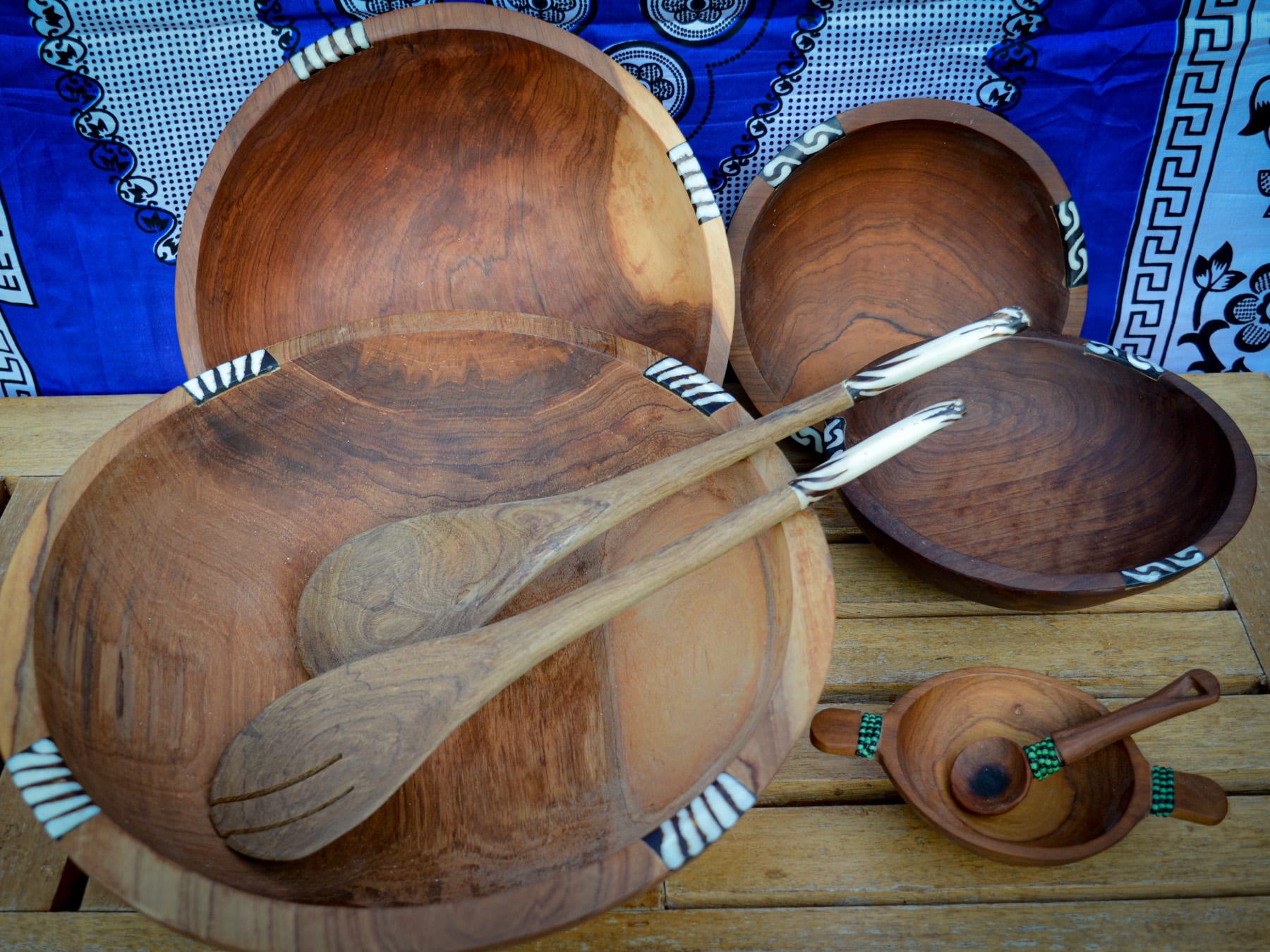
Wooden bowls come in various shapes and sizes. Image copyright Ayaan Chitty.
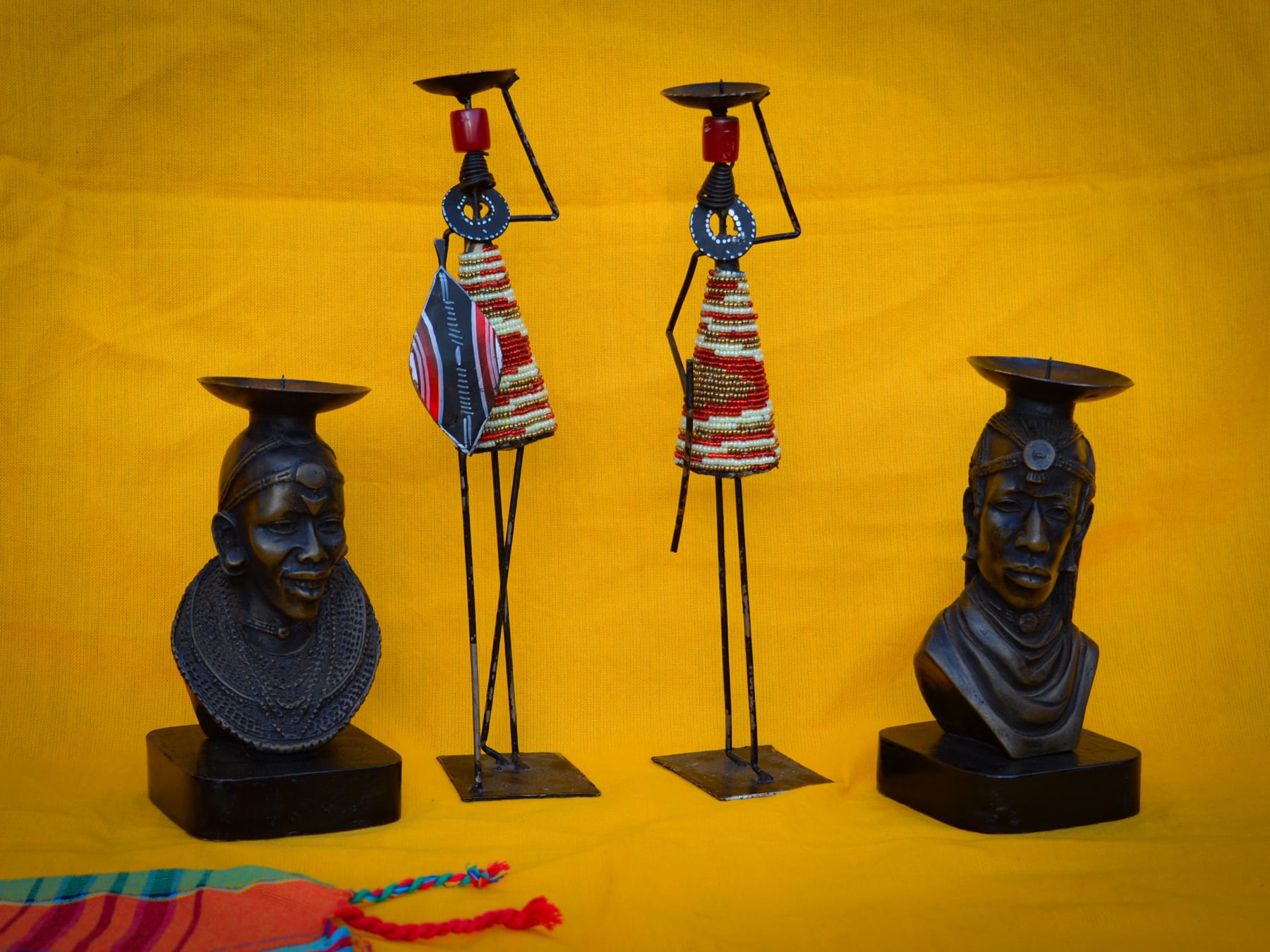
Candle sticks come in different African-themed designs. Image copyright Ayaan Chitty.
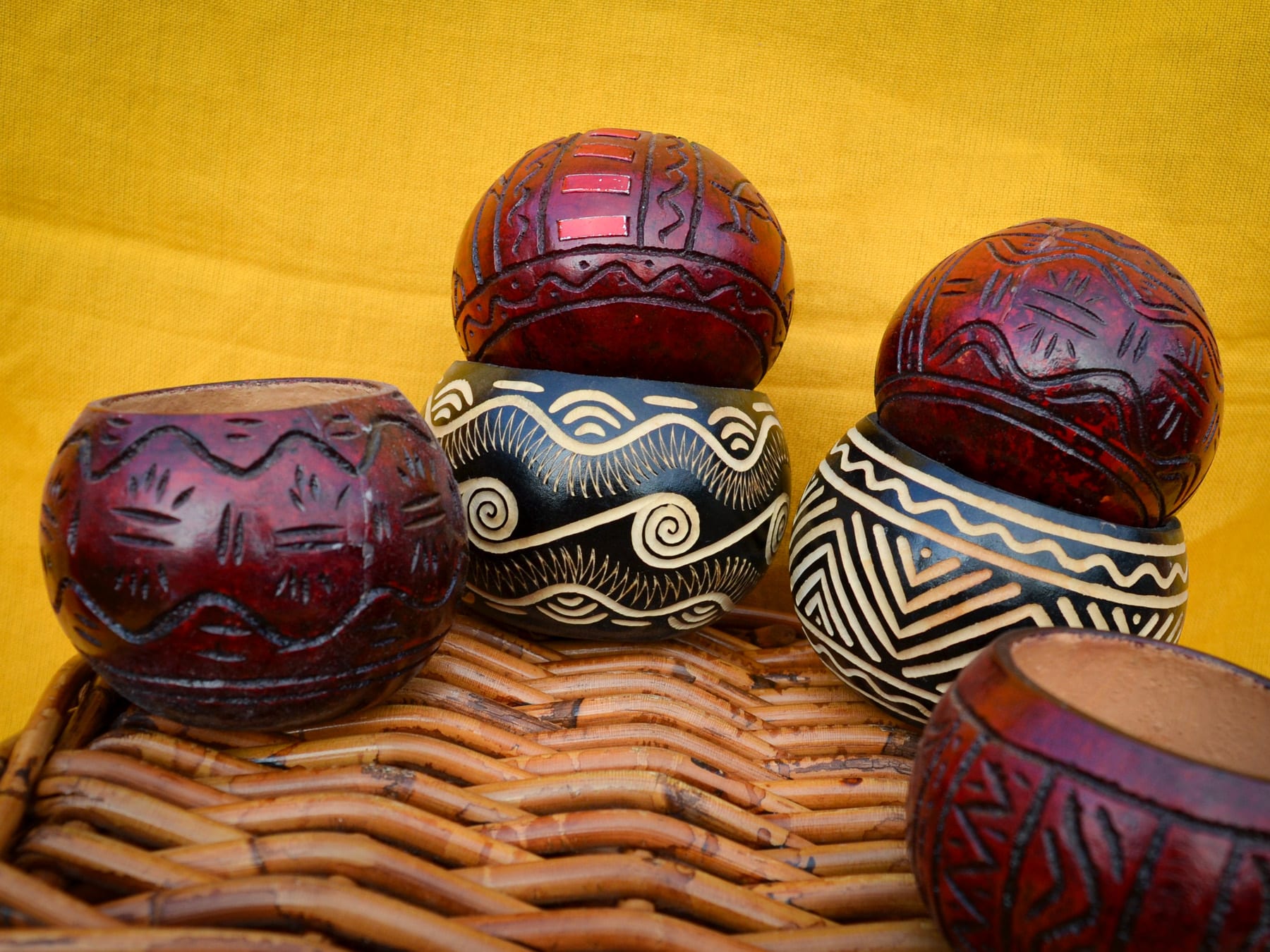
Tea light holders also come in many varieties and are an inexpensive gift item. Image copyright Ayaan Chitty.

Soapstone pieces are popular and come in many designs. Image copyright Ayaan Chitty.

Colourful, handmade mats and dining accessories are a popular choice. Image copyright Ayaan Chitty.
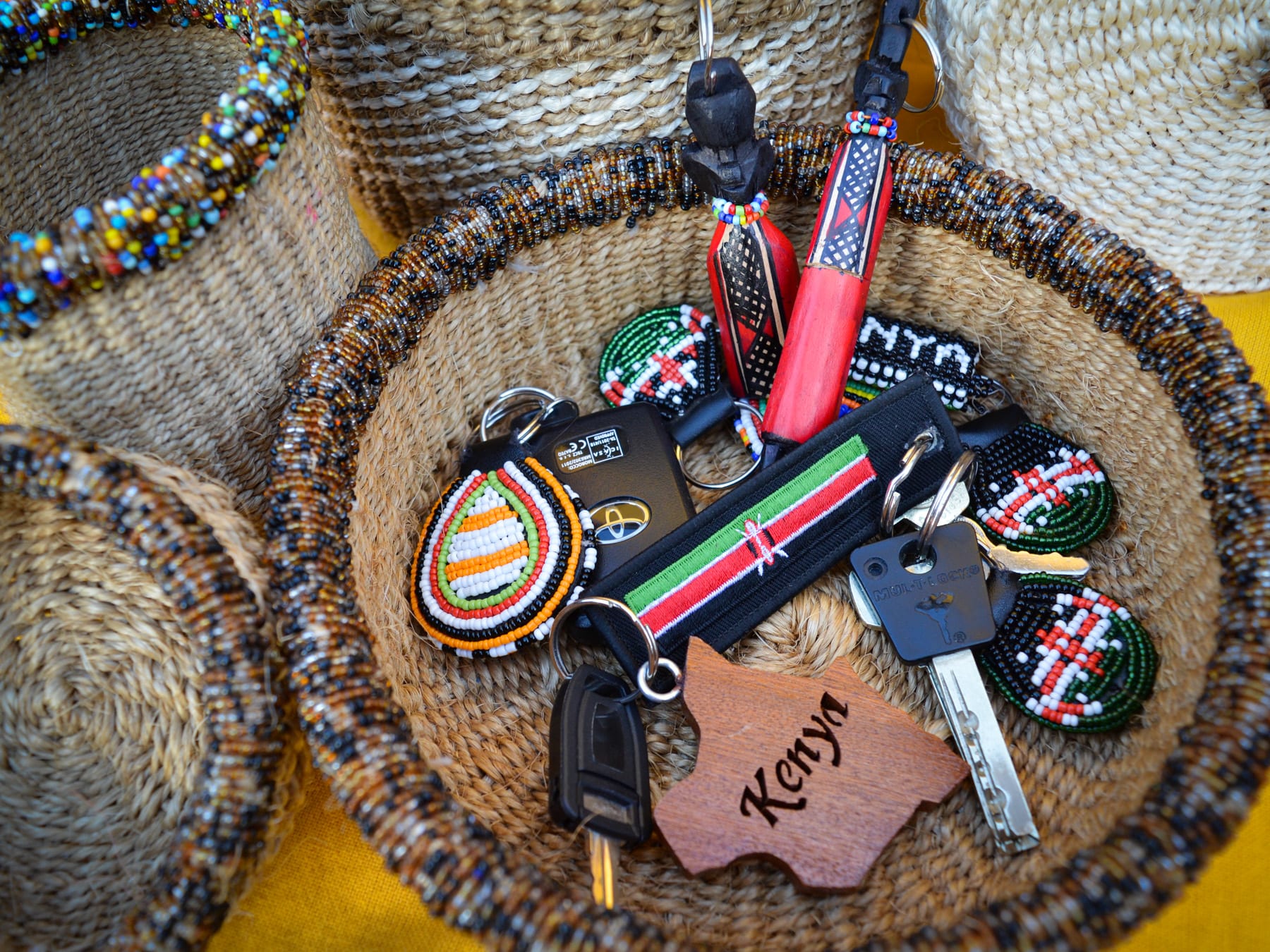
Handmade Kenyan key chains are very popular and inexpensive. Image copyright Ayaan Chitty.

Wire and beaded picture frames are a popular gift items and look great in your own home too. Image copyright Ayaan Chitty.

Handmade baskets are popular and come in many shapes, sizes and designs. Image copyright Ayaan Chitty.
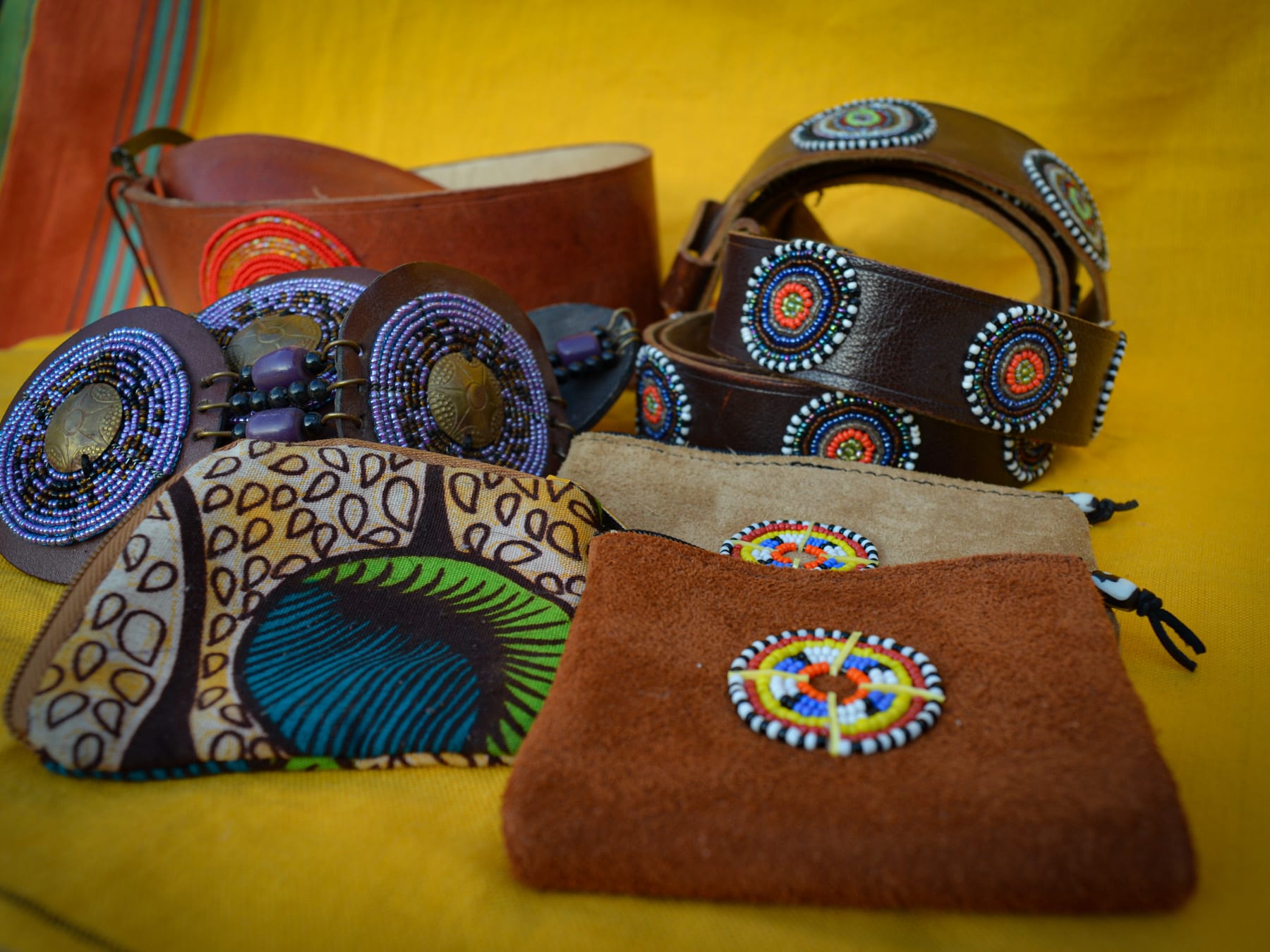
Beaded belts, pouches and other accessories are a popular gift item. Image copyright Ayaan Chitty.

A small sample of Maasai jewellery. Image copyright Ayaan Chitty.

A wire framed toy vehicle with bottle tops as decoration. Image copyright Ayaan Chitty.

Handmade Maasai beaded slippers/sandals. Image copyright Ayaan Chitty.

Kitenge fabric comes in various colours and designs. Image copyright Ayaan Chitty.

A traditional Maasai blanket (Shuka). Image copyright Ayaan Chitty.

Kikoy fabric comes in various colours and designs. Image copyright Ayaan Chitty.

A kikoy and fleece blanket. Image copyright Ayaan Chitty.

Artwork can be purchased from markets and framed in your home country. Image copyright Ayaan Chitty.
Pop-up Market at Westgate
Housed within Westgate Shopping Mall in Nairobi, the Pop-up Market is home to a number of boutique outlets, offering everything from gifts, handicrafts, leather goods, clothing, bead work, art work, coffee and wine. You can combine this with a visit to the mall, which also has a number of shops, a supermarket, cinema, children’s play area and various dining options.

Beautiful, high quality leather products are available from Pop-up Market. Image copyright Ayaan Chitty.

African sweaters can also be purchased from the outlets in the Pop-up Market. Image copyright Ayaan Chitty.
Banana Box
Founded in 1991, the company works with communities to produce beautiful hand made crafts with a deep story and their ethos is on supporting the continent, local communities, the environment, sustainability, recycling and empowering women. With stores in major shopping malls, this is an ideal place to buy local crafts aside from the Maasai markets.
Website: https://bananabox.shop/

Banana Box have a wide selection of ethically produced gifts and home ware. Image copyright Ayaan Chitty
One Way
One Way produce trendy clothing, gifts and accessories – including bags, belts, hats, key chains, jewellery, blankets, cushion covers etc. One Way believe in sustainability, fair trade and supporting local communities. Their products are made by Kenyan hands, using mainly Kenyan materials, representing the region. There are several branches at popular Nairobi shopping malls, including Village Market, The Junction, Yaya Centre and Sarit Centre.
Website: https://oneway.co.ke


One Way has a wide selection of trendy t-shirts for kids. Images copyright Ayaan Chitty.
Blue Rhino
Blue Rhino has two branches in Nairobi (Village Market and the Hub in Karen) and sells an exciting variety of gift items, handicrafts, ethnic inspired housing items and accessories. Most items have an African theme with the majority made locally, in Kenya.
Spinner’s Web
A showcase for the best handicrafts, pottery, home decor, jewellery, accessories and much more in Kenya, featuring 500+ vendors and consignees showcasing their fabulous products — all under one roof.
Website: http://www.spinnerswebkenya.com/
Sandstorm
Sandstorm makes beautiful handmade leather and canvas bags that are built for safari. The company has been making bags in Nairobi for 20 years and now has stores in the major shopping malls. I personally love their products and own several bags and pouches – as you can see!
Website: https://sandstormkenya.com/

Sandstorm makes beautiful handmade leather and canvas bags that are built for safari. Image copyright Ayaan Chitty
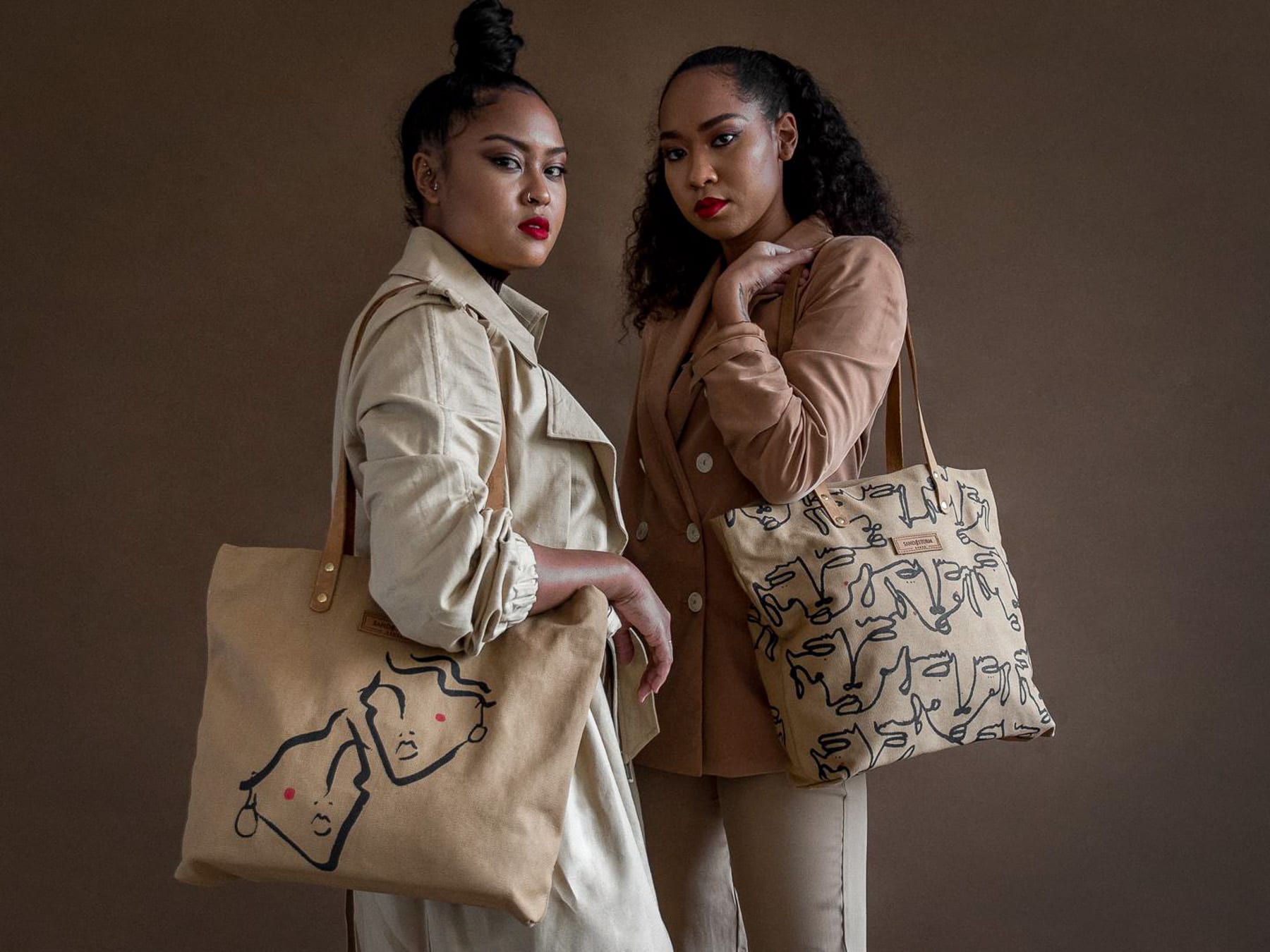
Sandstorm has a wide range of products for women and men. Image by Sandstorm.

Sandstorm products are handmade with care and attention to detail. Image by Sandstorm.
African Lily
African Lily was founded by two Italians with over 30 years experience in the leather industry. They produce exclusively designed hand-crafted Kenyan leather products & accessories. Their products are sustainably and ethically produced in Kenya. They have stands in Two Rivers, Westgate and Galleria malls.
Website: http://www.african-lily.com/


African Lily produce exclusively designed hand-crafted Kenyan leather products & accessories. Images copyright Ayaan Chitty.
Zinj Design
From their small workshop on the coast, overlooking the beautiful Takaungu creek and the Indian Ocean, Zinj Design uses natural, free range, Kenyan beef leather embellished with stunning East African bead work to make beautiful handbags, sandals, belts, dog collars and other small accessories. You can see the latest products from the store in Village Market.
Website: https://www.facebook.com/ZinjDesign/

Zinj Design uses natural, free range, Kenyan beef leather embellished with stunning East African bead work. Image copyright Ayaan Chitty.
Kazuri Beads
Kazuri means “small and beautiful” in Swahili and from its roots in 1975 as a tiny workshop, the company has grown to 340 women, skilled in the crafting of beautiful ceramic bead jewellery and a unique range of pottery. You can visit the factory in Karen or one of the stores in Village Market, The Junction or Westgate.
Website: https://www.kazuri.com
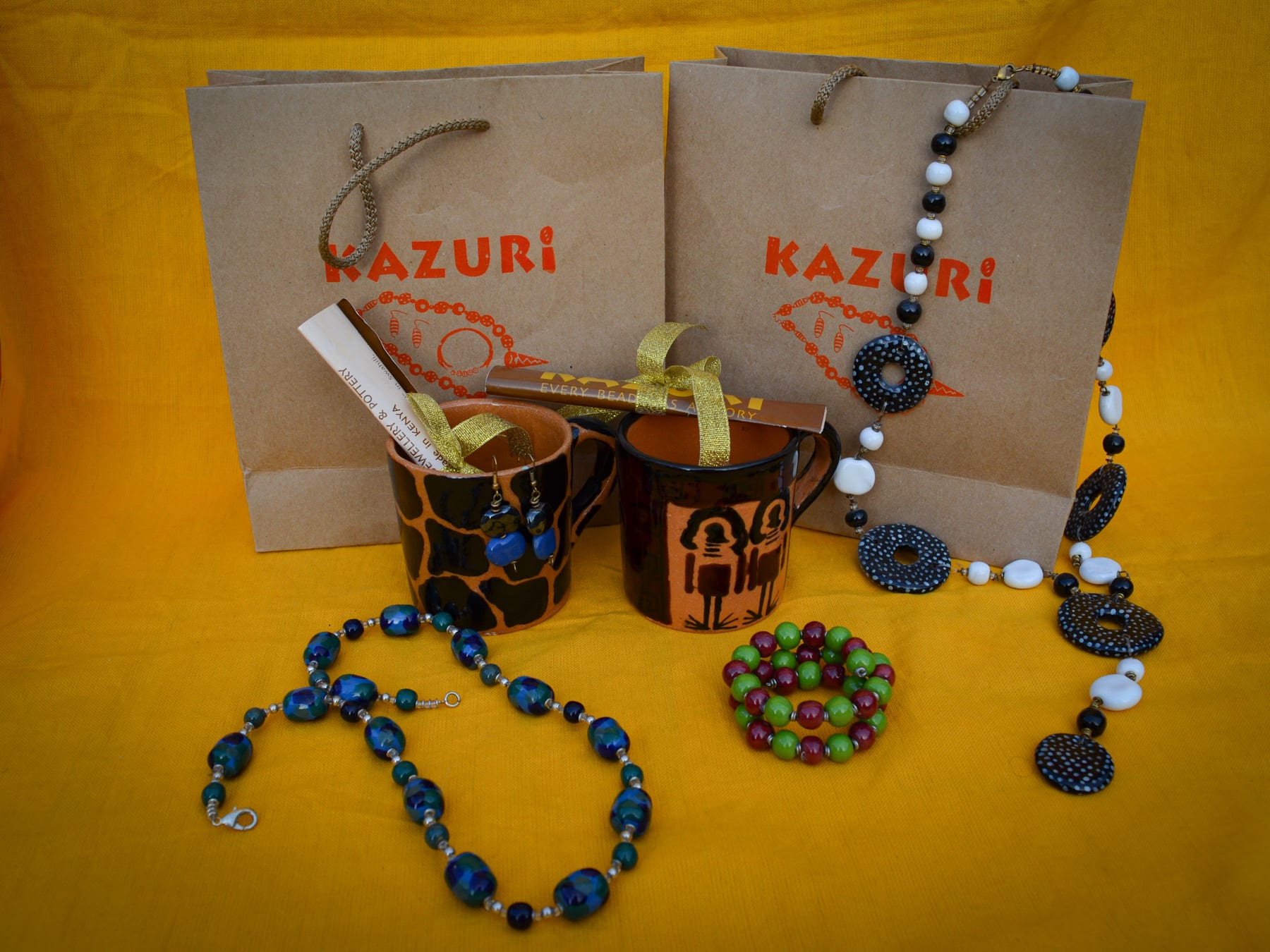
A small sample of Kazuri’s collection. Image copyright Ayaan Chitty.
Anselm Kitengela Hot Glass
Innovative, artistic and beautiful creations made from scrap glass from the Athi Kapiti plains in Kenya. You can visit the studio for glass blowing demos or the outlets in Village Market or The Junction to buy beautiful products such as drinking glasses, vases, jugs, bottles, bowls and furniture.
Website: https://www.kitengela.com/

Innovative, artistic and beautiful glassware by Kitengela. Image copyright Ayaan Chitty.
Safari Boots from BATA
The legendary boots that say you know Africa! The design has remained unchanged over the years. These hand stitched boots are built for the African bush and are comfortable and quiet – ideal for your Kenyan safari.
Website: https://www.batakenya.com/brands/10

The legendary boots that say you know Africa! Image copyright Ayaan Chitty.
What You Shouldn’t Buy
Animal skins, bones, teeth, horns, ivory, coral, turtle or tortoise shells are some examples of products that are protected. Whilst unfortunately, you may encounter some of these products for sale, it is illegal to take them outside of Kenya. Buying them also encourages the exploitation of animals, the natural world and supports illegal activities that ensue to obtain these items. So, for that reason alone, it should be avoided.
In Summary
I hope you have enjoyed browsing and if you’re planning to visit Kenya, that this has given you a few ideas of products to seek out and where to find them. I have enjoyed writing and creating the photographs for this guide – I hadn’t realised exactly how much we had accumulated from Kenya!
We’ve also got a whole host of other larger items too – such as Kenyan BBQs, home and garden furniture – but as fabulous as these things are, it’s not so easy to carry them back!
Please do let me know your feedback or questions via the comments box below (note: you may need to scroll right to the bottom of the page). I would be very happy to hear from you and will do my best to address any questions you have.
We are also publishing new content regularly, so don’t miss out – you can subscribe using the form below and get notified each time new content is added.
Finally, if you are planning on visiting Nairobi, you should read this post before you travel. Besides shopping ideas, it also features 90+ ideas to keep your family entertained in Kenya’s bustling capital – many of which are not featured in the usual guide books and blog posts.
Did you enjoy reading this post?
Why not share it with your friends?
Never miss an update from us!
Sign-up below and we’ll keep you updated of new posts and information about Africa.
